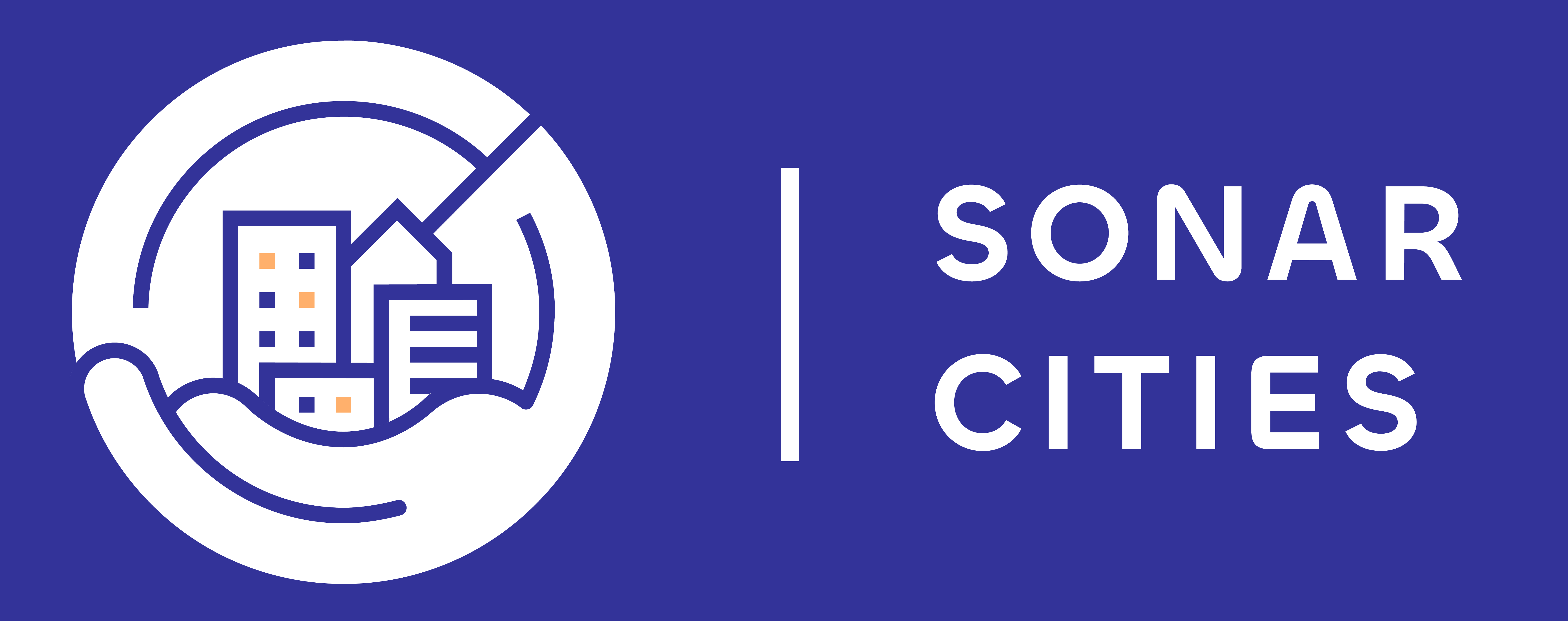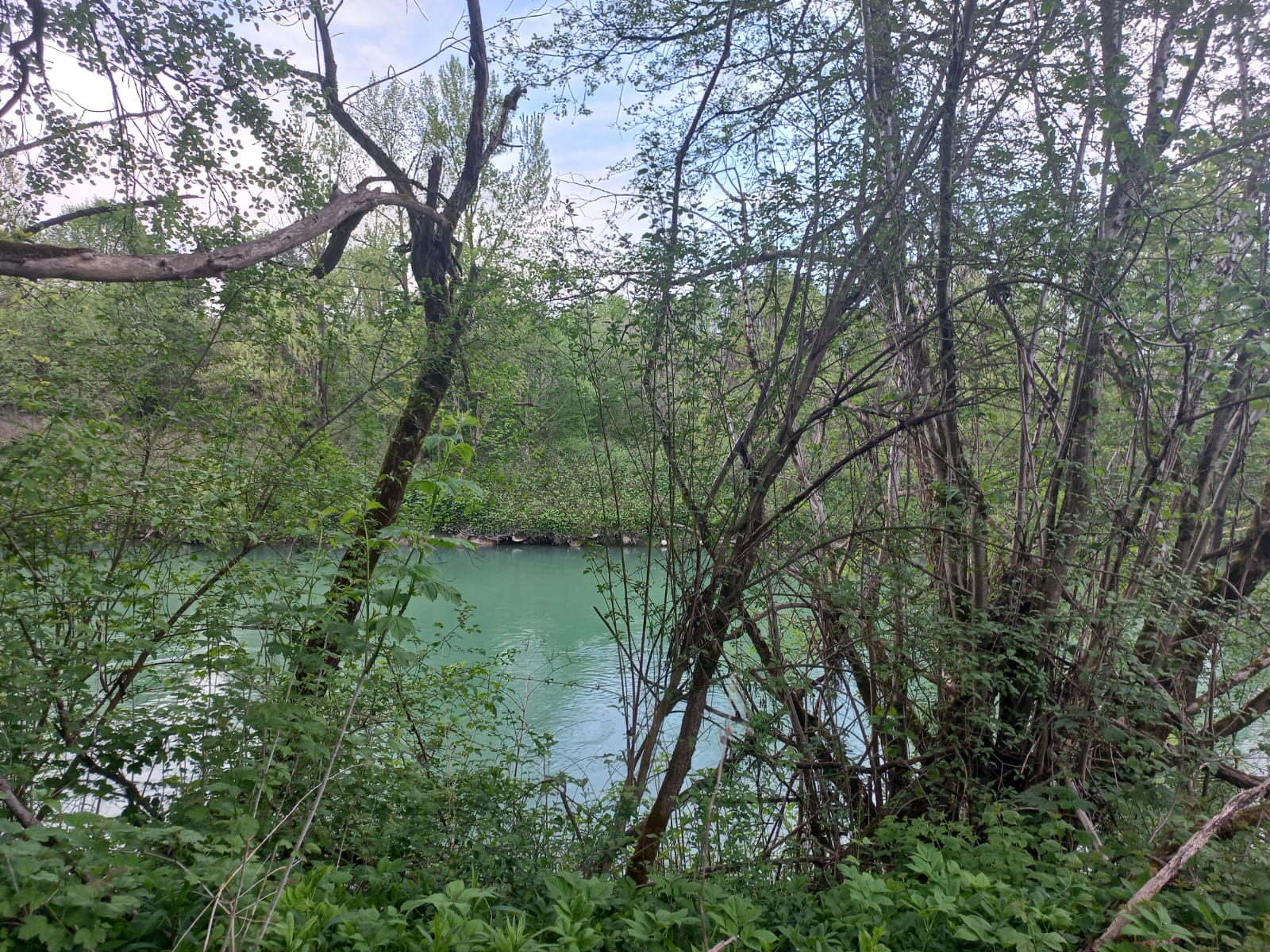Wild Waters is an ongoing cycle of lectures by experienced researchers and professionals covering themes including natural and other disasters, health and vulnerabilities, organised by the Slovenian Sonar-Cities partner, the Department of Ethnology and Cultural Anthropology at the Faculty of Arts of the University of Ljubljana.
The series of lectures, which also includes events involving local communities, aims to connect researchers and professionals across different fields with the local population of Ljubljana and to share knowledge that can be used to address and understand important questions of intersectionality of vulnerabilities, health inequalities, and various practices before, during, and after emergencies. The lectures can be attended in person or watched via videoconference.
The lecture series has so far included the following talks:
Opening talk with anthropologist and humanitarian worker David Brown: For several years, David Brown has worked with the American Red Cross in Maine where he leads volunteers and monitors disaster responses at local level. He has also been involved in large-scale natural and humanitarian disasters in Texas, Florida, and Guam. Recently, he has worked as a logistics coordinator with Distribute Aid, overseeing humanitarian shipments to Northern France, Ukraine, and North Carolina. In our Wild Waters talk, he stressed the importance of involving the local community and organisations in preparing and responding to disasters.
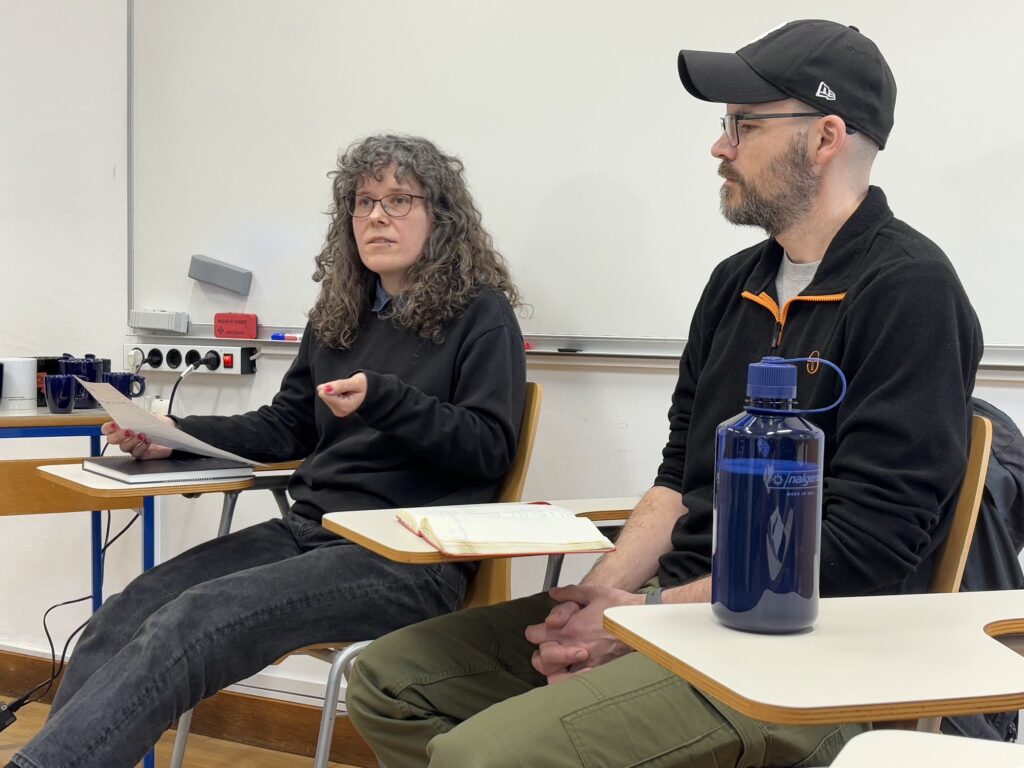
‘Waiting for the lights to go out’, by Dr. Alexandra Schwell: the second lecture in the series welcomed Dr. Alexandra Schwell, professor of Empirical Cultural Analysis at the University of Klagenfurt, Austria, and Editor-in-chief of Ethnologia Europaea – Journal of European Ethnology. Her research interests include political anthropology, urgency politics, (in)security, border studies, and Europeanisation processes. In her lecture, entitled Waiting for the lights to go out: Reflections on uncertainty and the urgent uncanny, she addressed the looming threat of a blackout that opens a liminal time-space between the present and a not-so-distant future, inviting speculation, anticipation, imagination, fears and hopes. She connected the concept of urgency, and the quasi-religious narrative of apocalypse and redemption used in Austrian blackout precaution campaigns, translating to and reciprocally influencing the relationship between the state and its citizens.
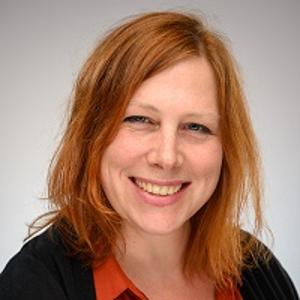
‘The militarization of the COVID-19 pandemic in South Africa’, by Professor Susan Levine: the third lecture in the series welcomed Professor Susan Levine, Head of Anthropology at the University of Cape Town, and Convenor of the programme Health Humanities and the Arts. Her work is positioned at the intersection of medical, political and visual anthropology. The presentation was co-organised by FORMA, the network for medical anthropology in the Balkans. It considered how the ghosts of apartheid’s military apparatus resurfaced during the COVID-19 pandemic in South Africa and argued that part of the state’s aggressive response to the virus grew out of an earlier regime that did nothing to prevent AIDS deaths, when there was a pathway to gaining access to antiretroviral treatment. The lecture considered the ways in which ordinary South Africans tolerated the intensive, and sometimes punitive COVID response based on their collective memory of death and debilitation at the height of AIDS denialism.
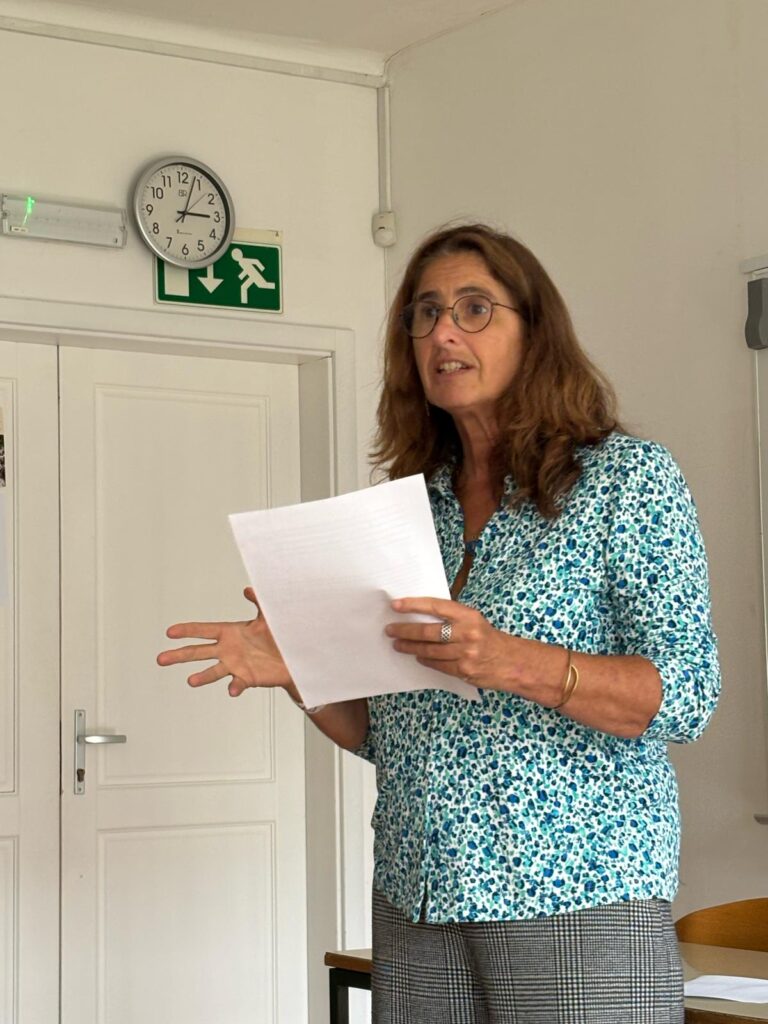
Sonar-Cities: A participatory research-action to prepare for disasters and health emergencies in Europe’s cities, by Dr. Tamara Giles-Vernick: the lecture series welcomed the Scientific Coordinator of the Sonar-Cities project to give a presentation of the Horizon Europe project, which aims to develop more socially inclusive responses to climate change-induced health emergencies and disasters in urban settings. Dr. Giles-Vernick addressed how the Sonar-Global project (2019-2022) was reshaped by the COVID-19 pandemic and gave rise to a 7-country investigation, looking at why uncertainties can disturb and transform research-action plans and raise questions about the politics of research actions. Dr. Giles-Vernick’s research lies at the interstices of medical anthropology and ethnohistory (historical research using anthropological tools) and investigates infectious disease transmission and global health interventions in Africa.
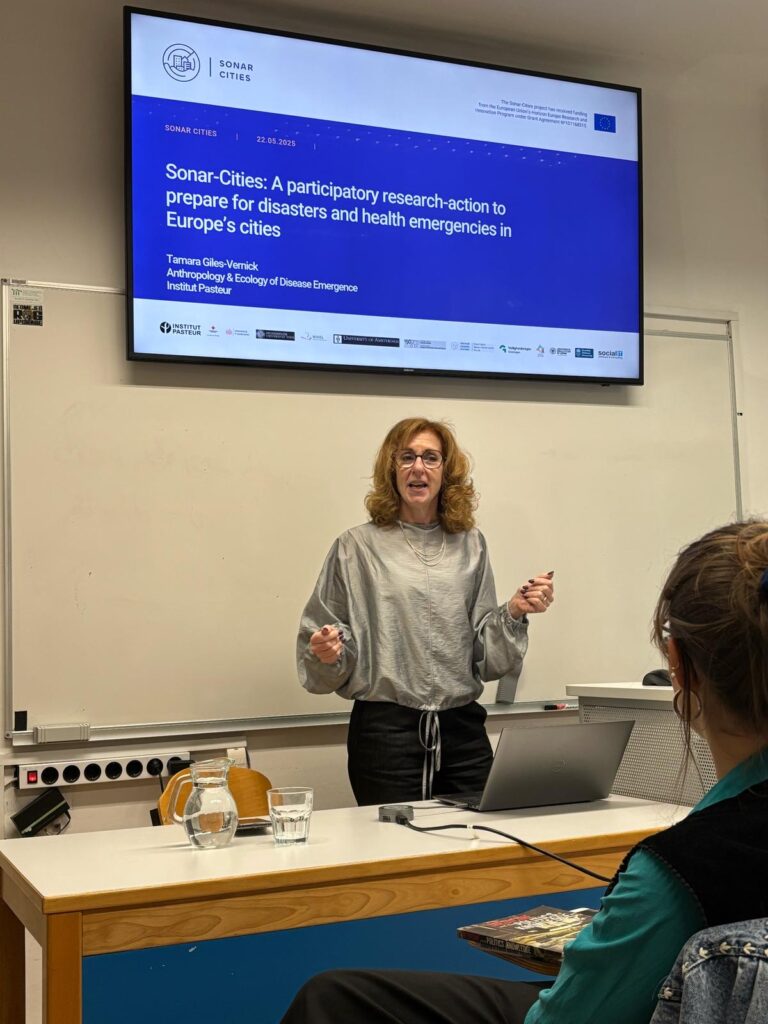
The lecture series also included a walk led by Anabela Mišeljić, a local resident of Vič in Ljubljana, which has been flooded multiple times in recent decades. A visit to Sneberje, an area of Ljubljana that was heavily flooded in 2023, was organised for the following day. Both visits served as opportunities to meet residents who shared their experiences of the flooding and its aftermath.
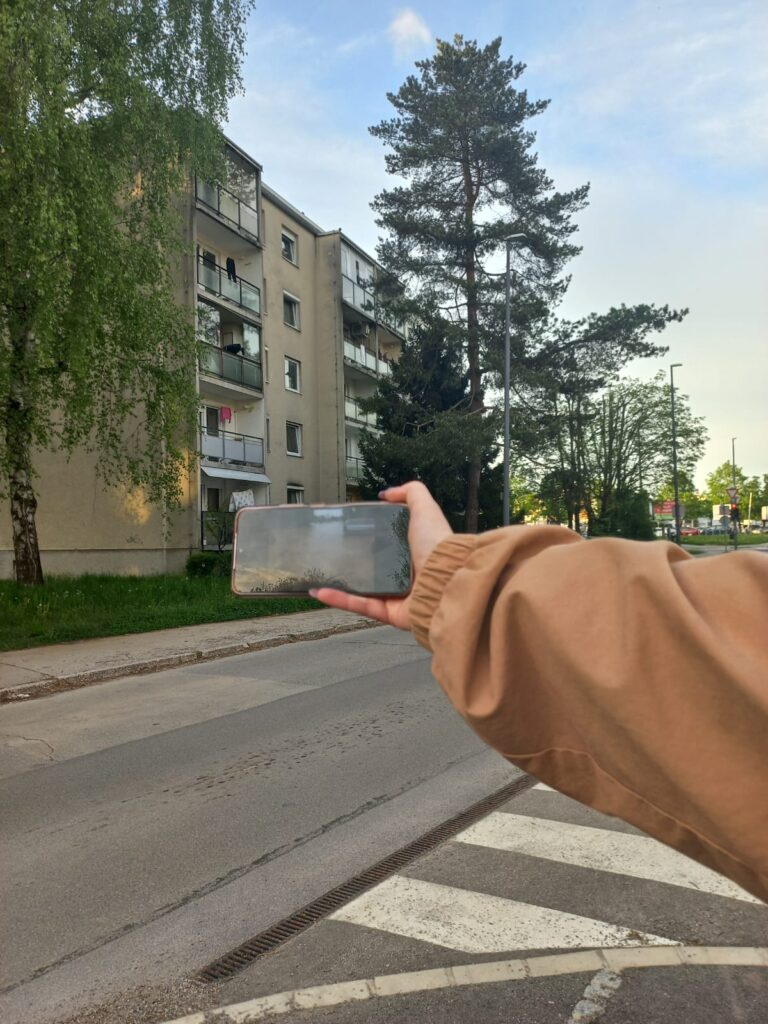
Experiences from flooded Vič: On Monday 23 June, 2025, two local residents of Vič, Anabela Mišeljić and Matej Pavlič, lead the Ljubljana team on an educative and extremely interesting walk through various streets of Vič, the southwest part of Ljubljana. On this very hot summer’s day, it was difficult to imagine that the area had been flooded in the past. However, a presentation of the history of flooding over the last one hundred years demonstrated that Vič has been flooded many times by the creek Glinščica, the river Gradaščica and the relief channel Mali Graben.
The walk guides led the team from one relevant spot to another, recounting how neighbours alerted each other of floods, how some local residents had night watches when flood alerts had been issued, how local residents tried to salvage their cars by parking on a small hill, and raised concerns about newer buildings that did not seem to have been built with floods in mind. The group could could see sandbags on the banks of the Gradaščica river and looked at the recently widened relief channel Mali Graben. Throughout the walk, participants were keen to ask many questions, showing that the theme of floods is not yet talked about enough. The walk took on even more importance knowing this.
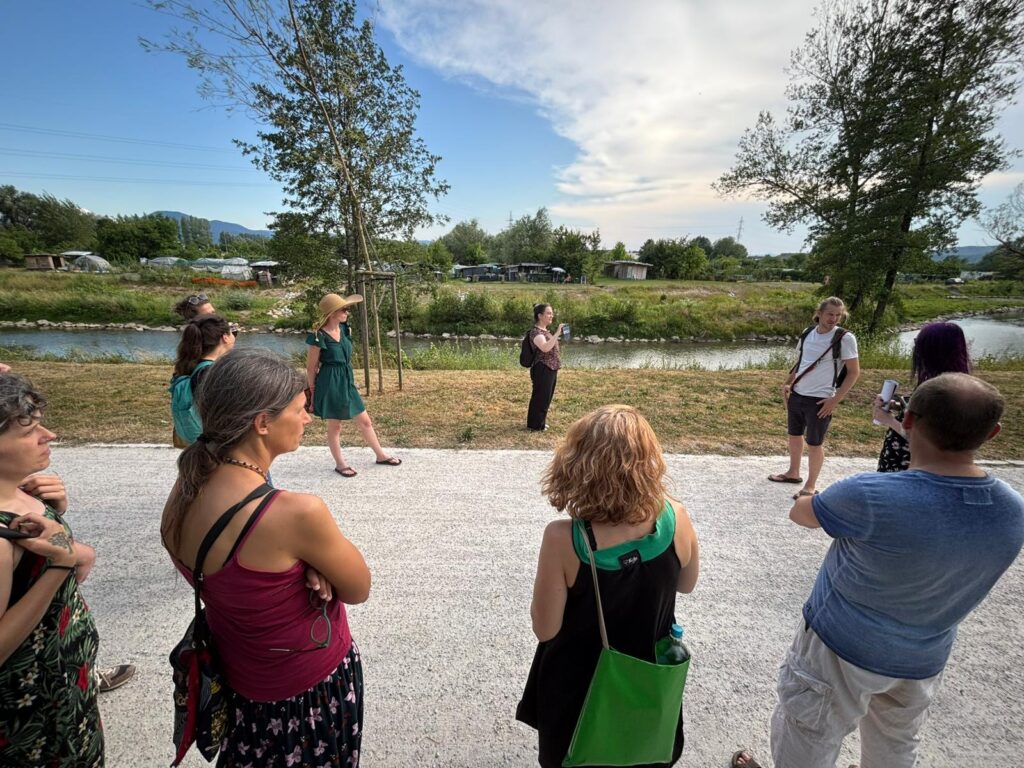
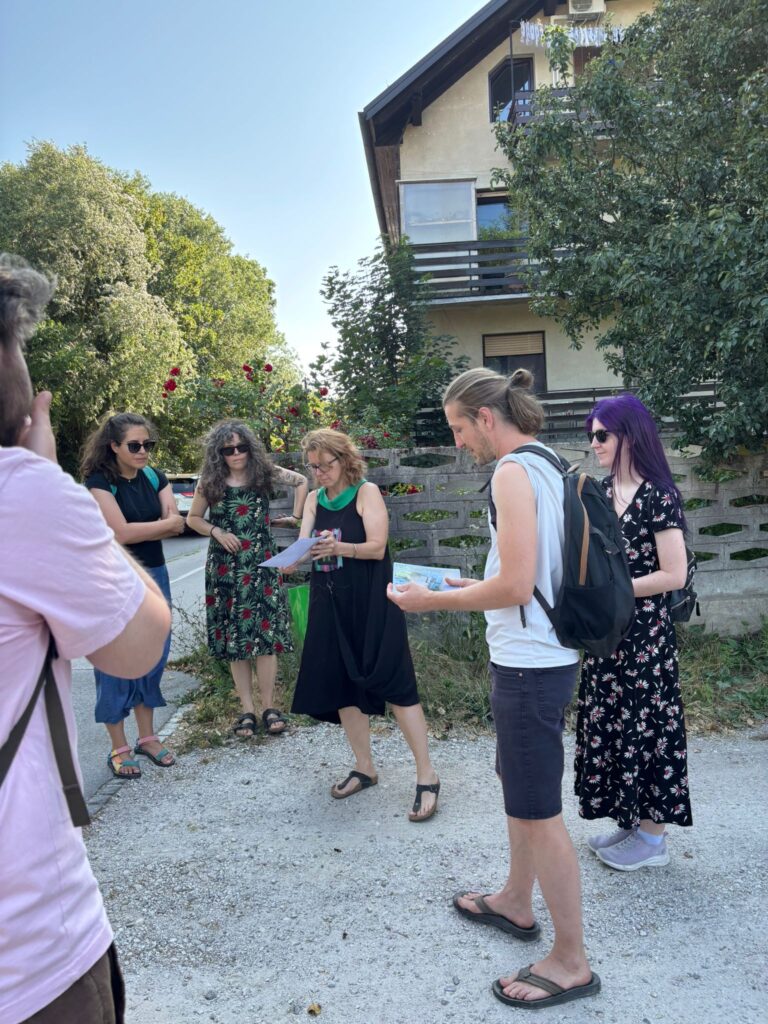
Stay tuned for more information about the Wild Waters lecture series.
